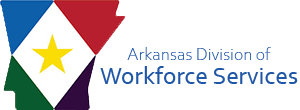Communication in Careers

Communication is paramount to success in the workforce. Even if your job doesn’t require that you talk directly to customers, you still have to communicate effectively with the rest of your team to ensure success for yourself and for the company. Communication skills can help you get your ideas across, get the job done right and avoid misunderstandings.
Be a good listener
This may be the most important skill of all. In fact, based on the skills projections done by the Labor Market Information unit for the 2017-2019 period, active listening is at the top of the list of “Top 15 Content Skills,” with a job demand of 57,495. Knowing how to listen well helps you get instructions and orders right. It also helps you get to know your co-workers. When someone talks:
- First, stop what you’re doing.
- Focus on what’s being said. Try not to think about what you’ll say next.
- Don’t interrupt.
- When they’re done, repeat back what was said in your own words. (“So, what you’re saying is…”)
Afterward, write down important things you need to remember. Put listening and thinking before speaking.
Watch what you say and how you say it
Directly below active listening on the “Top 15 Content Skills” list is speaking, with a job demand of 55,450. Speaking can affect the way your co-workers and customers see you. Some tips:
- Speak clearly. Don’t mumble.
- Watch your volume. Loud talking can disrupt others. Soft talking can make people strain to hear. Both can annoy.
- Use “good English.” Avoid slang and foul language.
- Keep your tone friendly.
- Avoid a flat, boring tone.
- Avoid talking too fast. It can sound hurried and tense and be hard to understand.
- Avoid eating or chewing gum while speaking. It can make you hard to understand. Also, it doesn’t look professional.
Be aware of your body language
People don’t just hear your words. They also “listen” to what they see:
- Make eye contact. When you avoid this, people may feel that you are hiding something or aren’t listening. (Holding eye contact for too long may make people uncomfortable. Take your cues from them.)
- Smile!
- Stand or sit up straight, but stay relaxed. You look disinterested or lazy when you slouch. Crossing your arms or being tense doesn’t seem friendly, though.
What actions make you feel disrespected when you’re talking? (Tapping a pencil, twirling hair, rolling eyes or scowling, for example?) Avoid doing these yourself!
Keep messages brief, clear and to-the-point
Remember that at work, “time is money.” Your supervisor will be especially grateful if you respect his or her time.
Here are some tips you can apply to talking, writing (on paper or in e-mail) or leaving a voice message.
- Before you call, speak or write, stop and think. Get your thoughts in order. Know what you want to say. Also, make sure you’re going to the right person for the issue.
- State the main point of your question or comment in the simplest, clearest way you can.
- Clearly state the date or time you’ll need a response.
- If leaving a message, clearly state your name and how the person can reach you.
- Be polite. Choose your words with care. Remember – the other person can’t see your body language.
Sound like a pro on the phone
Your workplace may ask you to follow a script when answering phones. If not, it’s helpful to come up with your own “script.” In general:
- Answer calls quickly.
- Greet the caller. Smile – they will hear it.
- Identify your employer (unless you know the call is from a co-worker) and department.
- Identify yourself.
- Ask how you can help.
For example, “Good morning. This is ABC Rentals, Reservations Department. Hillary speaking. How can I help you?”
Remember that it’s especially important to speak clearly on the phone.
Work at writing well
Writing comes in at number seven on the “Top 15 Content Skills” list, with a job demand of 14,405. Good writing skills are important in the workplace. For example, you’ll need them to:
- Fill out forms.
- Write e-mails, letters, memos or reports.
Here are some more tips for business writing:
- Use good grammar, punctuation and spelling – even for e-mail. It helps get your message across correctly. It also creates a professional image. E-mail and other computer programs can often help check your writing. (But they aren’t perfect – watch out!)
- Keep sentences short and easy to understand. Organize them in a logical way. For example, group together those that have to do with the same thing.
- Avoid using all capital letters. It comes across as “yelling.”
- Put the purpose of your message in an e-mail’s subject line. Keep it brief.
Regardless of the medium, communication is a crucial skill to have in order to be successful at work. If you haven’t already mastered it, work on your communication skills daily and come up with your own “script” of how you should answer the phone.
Tags:



